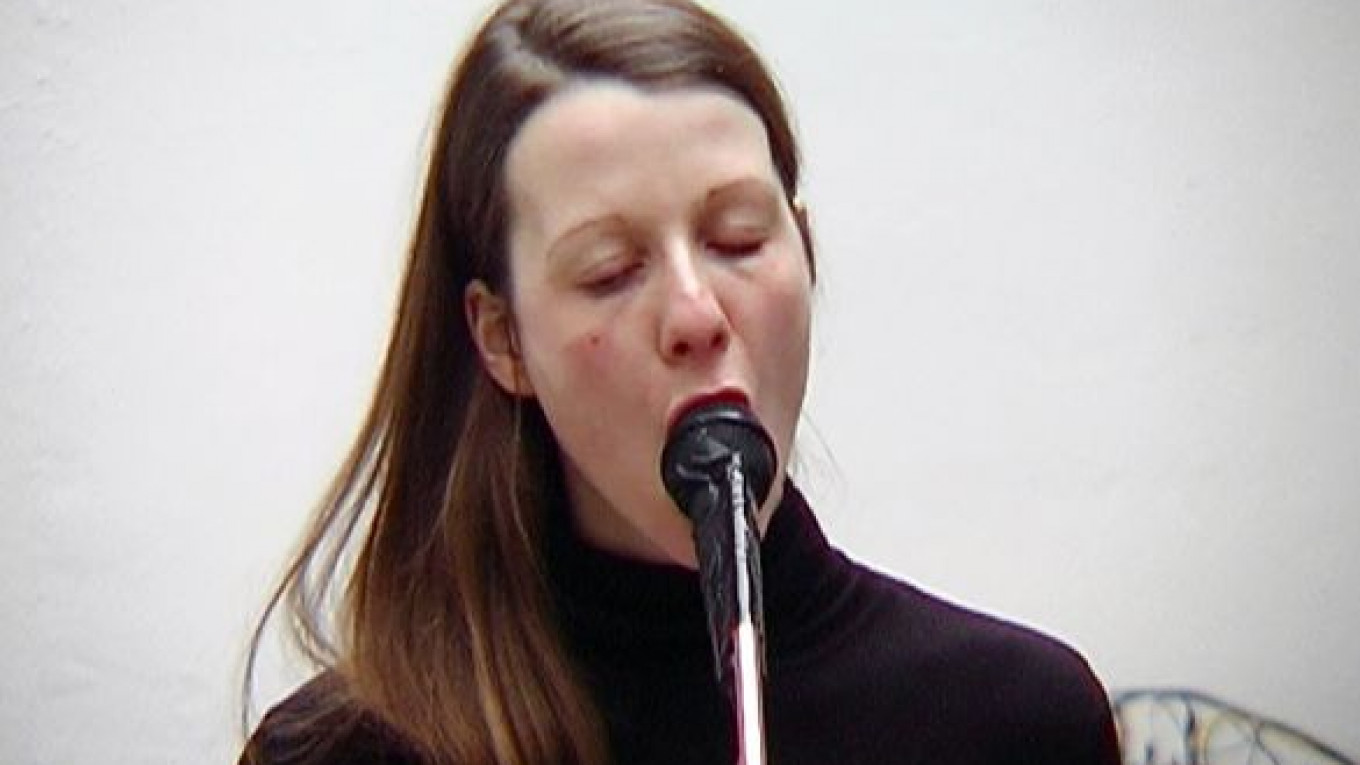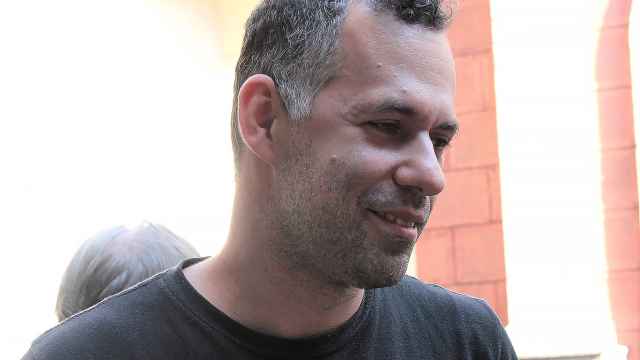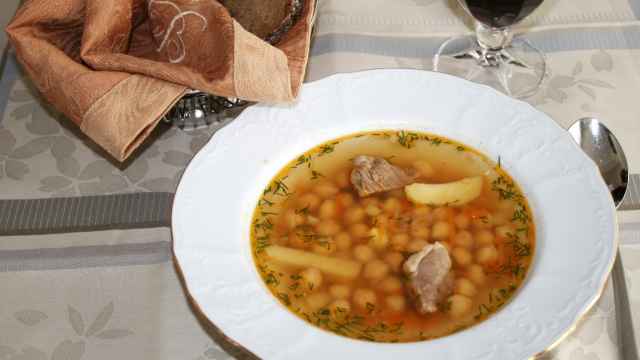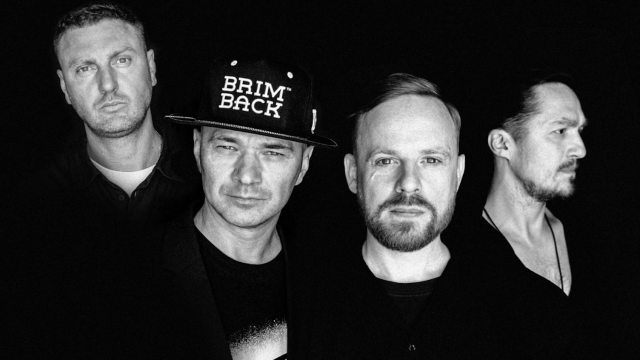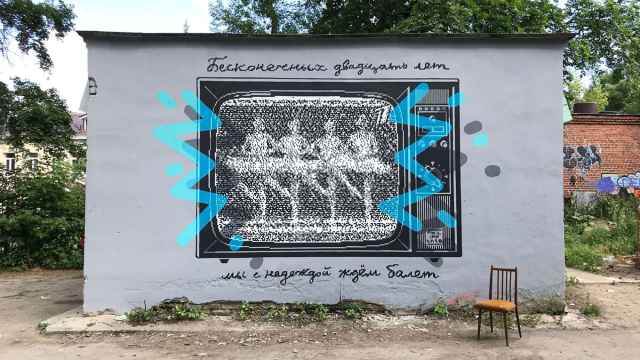The exhibit “Videoformat Corpus” is about the body — five female, one male, in this case — videoed and shown in different ways by six artists from Germany, the United States, Portugal, Spain and Estonia at the National Center of Contemporary Arts.
The exhibit is part of the center’s “Videoformat” cycle, which is dedicated to popularize contemporary video art and present international trends in the field to Russian audiences.
“Video and performance are two of the most direct and honest ways to express your mind and feelings for an artist in our times,” said Freya Hattenberger, a German artist whose work is featured in the show and who came to Moscow for the opening.
Continuing their tradition of showcasing serious artists from all over the world, the NCCA show is one that succeeds because of the quality of the works. It is a show that fits perfectly into a fall mood — introspective and quiet, personal — a perfect mental stroll for any given weekday.
The exhibit is an attempt “to reveal the structure of the artistic, visual and physical body in video art and its various extra meanings, such as the uses of the body as text, as image, or the body as myth,” said Karina Karayeva, the exhibit’s curator and head of the center’s Video and Cinema Program.
Visitors can see the different strategies of artists showing bodies in a variety of conditions and circumstances. Recognized Spanish artist Pilar Albarracin in a video titled “Prohibido el cante,” from 2000, explores the relationship between eroticism, pain and catharsis while she sings flamenco music. She shouts and laments in crescendo and ends by dramatically clawing out her heart and then throwing it to the floor between orgasmic gasps.
In another work, titled “Modus Operandi,” American artist Kiki Seror shows women applying makeup with brushes and pencils attached to a recording camera. This hypnotic video explores body rituals with a microscopic perspective, revealing that in some mechanic and cosmetic actions, objects, such as those used to enhance beauty, become part of the female body.
Juliao Sarmento, one of the most well-known contemporary Portuguese artists, shows us a young, beautiful lady in different situations in her video, “Lacan’s Assumption.” We see the woman breathing deeply on the beach, moving her long legs softly in a neutral black scene and indulging in an almost ritual, childish word play. Sarmento’s video explores a woman’s body as an object and subject of representation, emphasizing that female beauty awakens desire.
Running parallel with the show is a talk on Oct. 29 where experts will discuss the topic.
“The body has been one of the main questions in art, so we’ll have a discussion about the situation of corporal determination in different genres of visual art,” Karayeva said.
Among the speakers will be Lisa Morozova, one of the most interesting artists working with body language in Russia today.
“Videoformat Corpus” is on at the National Center for Contemporary Arts until Oct. 31. 13 Zoologicheskaya Ulitsa, Bldg. 2. Metro Barrikadnaya. Tel. 254-8492, www.ncca.ru.
A Message from The Moscow Times:
Dear readers,
We are facing unprecedented challenges. Russia's Prosecutor General's Office has designated The Moscow Times as an "undesirable" organization, criminalizing our work and putting our staff at risk of prosecution. This follows our earlier unjust labeling as a "foreign agent."
These actions are direct attempts to silence independent journalism in Russia. The authorities claim our work "discredits the decisions of the Russian leadership." We see things differently: we strive to provide accurate, unbiased reporting on Russia.
We, the journalists of The Moscow Times, refuse to be silenced. But to continue our work, we need your help.
Your support, no matter how small, makes a world of difference. If you can, please support us monthly starting from just $2. It's quick to set up, and every contribution makes a significant impact.
By supporting The Moscow Times, you're defending open, independent journalism in the face of repression. Thank you for standing with us.
Remind me later.


